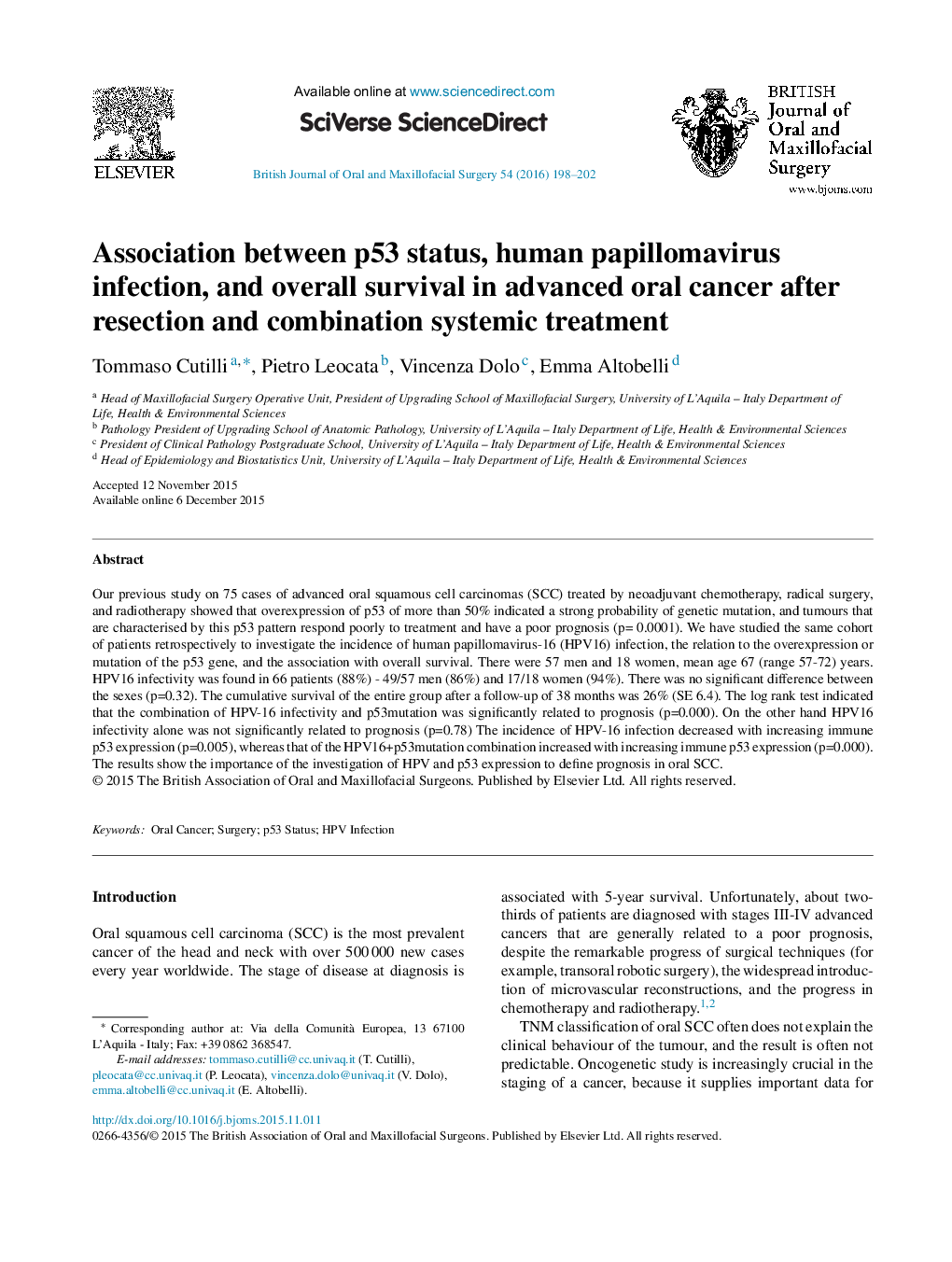| Article ID | Journal | Published Year | Pages | File Type |
|---|---|---|---|---|
| 3123376 | British Journal of Oral and Maxillofacial Surgery | 2016 | 5 Pages |
Our previous study on 75 cases of advanced oral squamous cell carcinomas (SCC) treated by neoadjuvant chemotherapy, radical surgery, and radiotherapy showed that overexpression of p53 of more than 50% indicated a strong probability of genetic mutation, and tumours that are characterised by this p53 pattern respond poorly to treatment and have a poor prognosis (p= 0.0001). We have studied the same cohort of patients retrospectively to investigate the incidence of human papillomavirus-16 (HPV16) infection, the relation to the overexpression or mutation of the p53 gene, and the association with overall survival. There were 57 men and 18 women, mean age 67 (range 57-72) years. HPV16 infectivity was found in 66 patients (88%) - 49/57 men (86%) and 17/18 women (94%). There was no significant difference between the sexes (p=0.32). The cumulative survival of the entire group after a follow-up of 38 months was 26% (SE 6.4). The log rank test indicated that the combination of HPV-16 infectivity and p53mutation was significantly related to prognosis (p=0.000). On the other hand HPV16 infectivity alone was not significantly related to prognosis (p=0.78) The incidence of HPV-16 infection decreased with increasing immune p53 expression (p=0.005), whereas that of the HPV16+p53mutation combination increased with increasing immune p53 expression (p=0.000). The results show the importance of the investigation of HPV and p53 expression to define prognosis in oral SCC.
